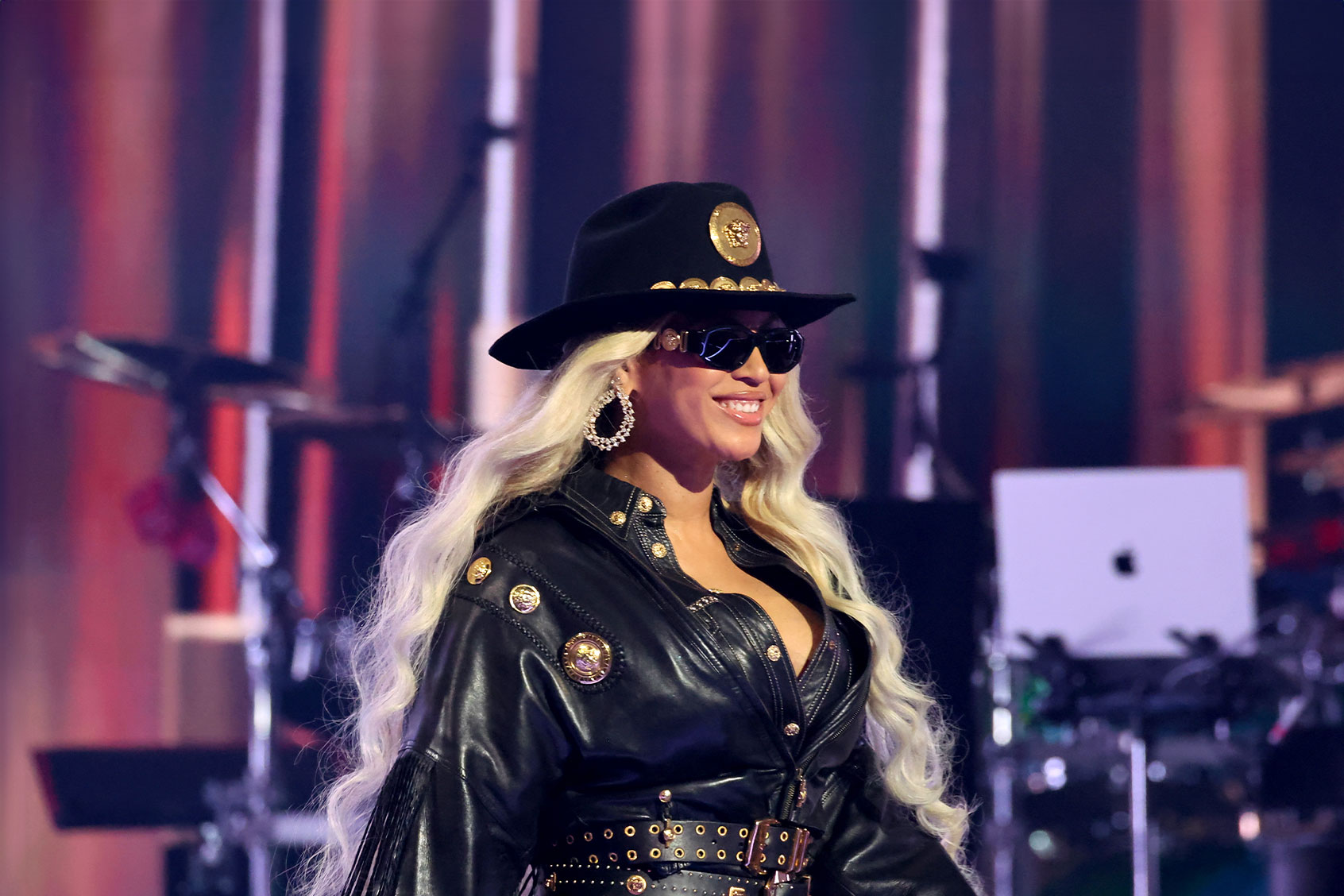There are levels to Beyoncé's "Cowboy Carter."
After critics and racists questioned the artist's presence in country music after a controversial and fiery performance of her country song, "Daddy Lessons" with the Chicks at the 2016 CMA Awards, Beyoncé hit back with the Western epic 27-song album. The Texas pop diva even said that "Cowboy Carter" was born out of an experience where she did not feel welcome and "it was very clear that I wasn’t."
"But, because of that experience, I did a deeper dive into the history of Country music and studied our rich musical archive," she said.
That's exactly what her eighth studio album explores in its themes of American identity, struggle and love — all the pillars of country music storytelling. This is especially felt in her delicate cover of the British rock band Beatles hit "Blackbird" from the 1968 "White Album." The musician takes what is a classic Beatles hit and transforms it into her Beyoncé-ified version featuring other emerging Black female powerhouses in country music: Tanner Adell, Brittney Spencer, Tiera Kennedy and Reyna Roberts.
The original song, written by Paul McCartney, is reportedly an ode to Little Rock Nine's bravery in desegregating schools in Arkansas during the late '60s. He told GQ that "Blackbird" was just a symbol to represent Black women, specifically the Black girls in the Little Rock Nine. Melba Pattillo Beals, one of the members of the Nine, said to The Washington Post that the cover “awakens so much." About 67 years ago, she and eight other courageous teenagers courageously walked into school, cementing themselves in history as the firsts to desegregate schools in the South. "This is the story of my life," she told NPR.
But there are many different cultural and societal reasons why the song has resonated with so many Black artists and people even if it was written by McCartney, who is a white man. Katie Kapurch, an associate professor of English at Texas State University who teaches literature and media studies, and co-author of the book "Blackbird," told Salon the reason why the cover of "Blackbird" was the right fit for "Cowboy Carter" was because Beyoncé is "tapping into stories that McCartney has attached to the song. But she's also mobilizing the song in a tradition of Black artistry and Black storytelling."
Furthermore, it's important to highlight that other Black artists like Sylvester, Ramsey Lewis and Billy Preston have covered the popular song. Kapurch said they have used the song to address and to "represent different ways of thinking about flight, especially in Black storytelling arts of the African diaspora that represent flight as means of a magic, imagining liberation out of oppression."
When Beyonce centers other Black country female artists like Adell, Spencer, Kennedy and Roberts, she draws inspiration from artists like Sylvester and Preston, who incorporated other artists as "a community of singers on the song." Sylvester had two backup singers, Martha Wash and Izora Rhodes Armstead, in his live performance of the song 1979. This collaborative effort is not just about Black flight but also about "lifting up others as you go," Kapurch said.
At the end of the song, it's also crucial to note that the pop singer shares her lead vocals with Kennedy. Black female country singers are no longer in the shadows. They are not just backup singers.
"That gesture is also really important," Kapurch said.
The song's strong storytelling and musical elements stay the same in Beyoncé's version. This has led to blowback from listeners, some of whom have called the song boring, largely due to the lack of understanding of the song's political and historical context. Others have also altogether denounced Beyoncé's foray into country music in general. Kapurch noted that people may be responding to the song's familiar arrangement, "which is McCartney's own instrumental acoustic guitar and foot tapping." Kapurch said that forces listeners' attention to the voices.
"So, in that way, you're both on stable ground but on unstable ground at the same time," Kapurch said. "So you can't put your feet in 1968. This is not a song for that time. But it's also using 1968 sounds for 2024."
In covering this song, Beyoncé is "transcending genres, she's transcending time."
Kapurch said the cover also forces listeners to recognize and remind themselves "that the Beatles were drawing heavily, really heavily on Black American artists themselves."
While not everyone may not understand or like the cover of the classic, McCartney — who again, wrote the original song — posted a statement singing Beyoncé's praises. He said her version "reinforces the civil rights message that inspired me to write the song in the first place" and urged his fans to listen in good faith.
Kapurch said McCartney's statement is "positive" and his "endorsement will quiet racist, ignorant criticism from his fans."
"McCartney is, though, also using Beyonce and the popularity of her major record to signal boost himself," Kapurch said. "Because she is, today, a much bigger and important artist than he is today. In other words, he needs her more than she needs him."

